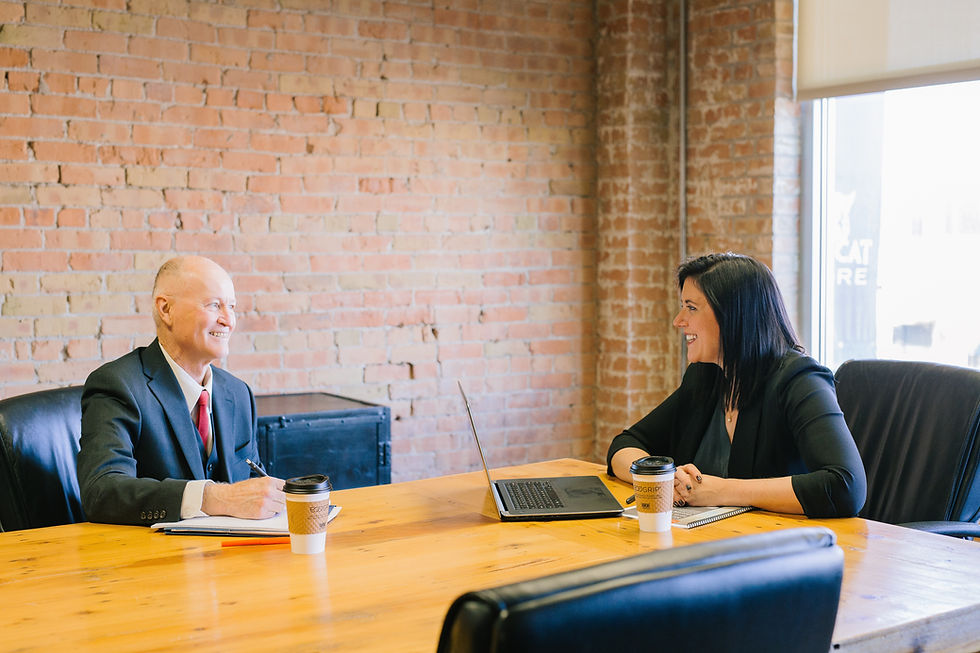The Future is Green and Gold as Socially Responsible Investing Takes a Unique Turn
- Brainz Magazine

- Jan 24
- 3 min read
Written by Annette Densham, Chief Storyteller
Multi-award-winning PR specialist Annette Densham is considered the go-to for all things business storytelling, award submission writing, and assisting business leaders in establishing themselves as authorities in their field.

When we run a cross-section analysis of the modern-day investor, millennials are today’s mum-and-dad investors. They don’t want to put skin in the game just to make money. They want to invest in property, but it has to do more than accumulate wealth. We need to save the planet, save some animals, or perform a great function for society at large. This is why disability housing is the golden child of the investment world. Making these types of investments accessible to mum-and-dad investors? That requires work from property investment experts.

ESG: The new VIP of investing
ESG metrics have become a buzzword in boardrooms, driving a seismic shift in how companies measure success. Transparency is no longer optional. Savvy investors demand proof, insisting, "Show me the green receipts!" This evolution reflects a growing expectation for businesses to pair profit with purpose, ensuring their operations are both ethical and sustainable. Businesses that offer consumers the opportunity to use their money to gain within their personal capacity while making a positive impact are the ones that will ultimately always come out on top.
Opportunities hotter than planet Earth
Impact investments are reshaping the future, championing social equity, affordable housing, and more. From green bonds funding sustainability to Goro Gupta’s SDA property investment business model, these strategies prove that doing good doesn’t just feel right; it drives smart, profitable business. While we’re creating generational wealth for today’s mum-and-dad investors, we’re also housing people with disabilities and lightening the load on the SDA and NDIS.
Greenwashing: Spotting the frogs in a sea of princes
Learn to identify intentional greenwashing. Companies that use vague terminology like “green practices,” “sustainable,” or “ethical” without being able to specify where exactly their products or services deliver on these claims typically don’t deliver. Check certifications to verify claims, and do due diligence on service providers. For example, not all property investors who claim to provide SDA property investment opportunities build to SDA standards, meaning the build could go to waste at the investor's expense. Research and due diligence are non-negotiable.
Crystal ball gazing: What’s next for SRI and ethical property investing?
In property and SDA housing, we need to see more participant-led home designs. The best way to create homes that truly serve the residents is to involve them in the design process. By listening to the needs and preferences of future residents, investors can build spaces that are not only functional but also tailored to enhance the future residents’ quality of life.
SDA property investors need to aim for high satisfaction rates among residents because this will translate directly to benefits for investors. When residents are content and choose to stay in their homes long-term, it ensures a consistent and reliable rental income. This stability reduces the risks associated with vacancy periods and the costs of finding new tenants.
Since SDA homes accommodate people with limited movement and additional needs, they require a specific type of build. This means we need more construction businesses to learn these techniques and make SDA builds a mainstream offering. Not only would this increase the success rates of SDA investments, but it would also create more opportunities for both investors and tenants.
People are out there, moving mountains
Companies like Ethical Property Investments specialize in SRI and refine that focus even further by building homes for people with disabilities. By partnering with organizations like Empowered Liveability and immersing themselves in the disability community, they’re able to meet the SDA criteria for their builds while creating solutions that address the actual needs versus the perceived needs of people with disabilities.
Annette Densham, Chief Storyteller Multi-award-winning PR specialist Annette Densham is considered the go-to for all things business storytelling, award submission writing, and assisting business leaders in establishing themselves as authorities in their field. She has shared her insights into storytelling, media, and business across Australia, UK, and the US speaking for Professional Speakers Association, Stevie Awards, Queensland Government, and many more. Three times winner of the Grand Stevie Award for Women in Business, gold Stevie International Business Award, and a finalist in Australian Small Business Champion awards, Annette audaciously challenges anyone in small business to cast aside modesty, embrace their genius and share their stories.






